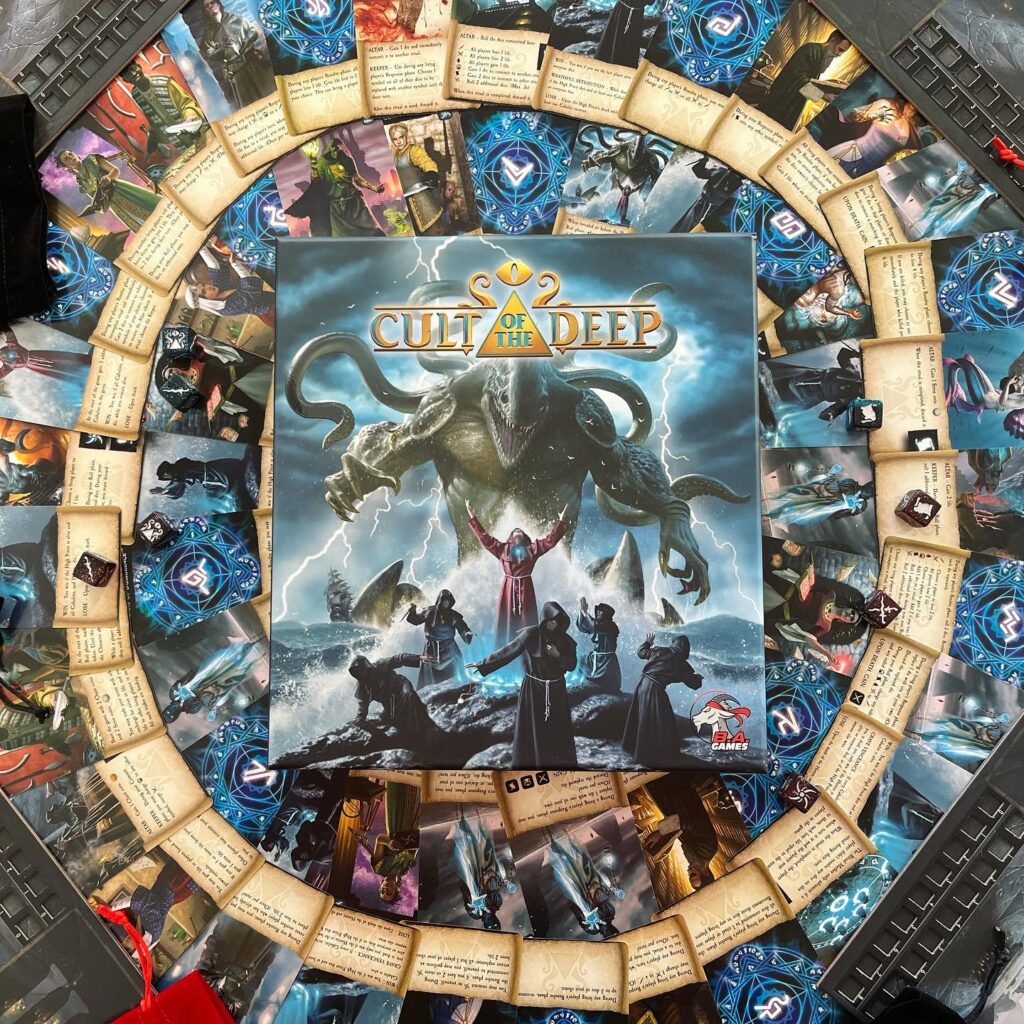“After months of wandering and grasping for answers, my search brought me to a remote fishing town. A visibly ancient library stood in the town. The library seemed many times older than the fishing village where the imposing structure was based. The stones on the outside of the library had been eroded over the long years by the infernal weather: a combination of sloshing seawater, torrenting rain and cutting and freezing wind. The hope for answers and an urge to escape the smell of rotting fish lured me inside. In contrast to the outside, the inside of the library seemed untouched and the books superficially pristine. After hours of reading the works – unknown to me – I found more new questions than answers to my old ones.
With despair in my mind, I went out again and found an inn. I paid the innkeeper in advance for my short stay and went into the village to look for food without the smell of fish. On the way, I saw a group of villagers gathered around the village square in long black hoods and robes, presumably, based on the grey sky, to shield against the projected rain. The group’s voices produced a low, monotonous but lilting hum. My curiosity overcame my reason and I decided to take a closer look. “Ph’nglui mglw’nafh Cthulhu R’lyeh wgah’nagl fhtagn!” shouted one of the persons standing at the front of the group and suddenly in the distance, a large hulking figure slowly rose from the sea…”

Cult of the Deep is a dice game with hidden roles. You could compare this interplay of concepts that form the starting point of the game with the game Bang! The Dice Game. In that game, players work in teams – where the actual division of players into the teams is hidden – to shoot and unmask each other with dice. Cult of the Deep, as the introduction already suggests, draws its theme from the Cthulhu mythos. Gods with tentacles all over their bodies, keep mystics and researchers spellbound, and cult leaders try to summon these evil primordial gods with their devilish rituals. It remains an intriguing theme that as an evil god is immensely popular among board game cultists!
Setup, role distribution and goal
In Cult of the Deep, various rituals are held and players try to make their “team” win. Depending on the players, a number of rituals are revealed. Each ritual is represented by a card and the corresponding ritual board. The rituals provide unique and varied game rules, elements and situations.
In the game, each player is assigned a hidden role, as well as a character and a sigil (a magical symbol). Hidden Roles work as you would expect: the role determines the “team” affiliation of a player and how a player can win. There are different roles with different ways to win the game:
- High Priest: this player wins if all Cabalists and Heretics have died and the High Priest himself is still alive.
- Faithful: These players have sworn allegiance to the High Priest and win in the same way.
- Cabalist: these traitors win if the High Priest dies and at least one Cabalist is still alive.
- Heretic: The Repentant Heretic wins if he or she is the only one left alive or all players die, and the Vengeful Heretic wins if he or she is the only one left alive or all players die. These roles have some additional conditions in case of specific situations.
Some of the ways to win have some overlap and can occur simultaneously, so the game offers a solution for this in the form of multiple tie-breakers. The amount of roles depends on the amount of players. Which Heretic is part of the game also depends on the amount of players. That the roles are hidden is only half true as the High Priest is revealed at the start of the game. This is thematically correct (since it concerns the cult leader) and also provides an interesting game element because of the imbalance of information.
In addition to a role, each player also receives a character and a sigil. Characters determine the amount of lives a player has, a specific symbol that allows players to regain lives when rolling the dice and a special ability that players can use during the game. Which character a player plays with is public information. A sigil gives a one-time bonus. A sigil is a closed card that players can reveal once during the game for the bonus.
Gameplay
During a turn, players roll dice and assign the symbols of the rolled dice. All other players, after the allocation of dice, get the chance to “react” to the allocation of the rolled symbols with their special properties, before the actions of the corresponding symbols are actually performed.
A player can roll the dice a total of three times and set aside dice of his choice. The dice show different symbols with corresponding actions. Daggers allow players to inflict damage on other players. With drops, players can get life back. Special symbols can only be used by specific characters to get life back.
Symbols can also be assigned to rituals. Each ritual requires specific symbols. When a symbol is assigned and executed, its corresponding cube or cubes move on the ritual board. Once all cubes have reached 0, the ritual is completed. Completing rituals gives special bonuses to the player who has completed the ritual. It is possible that the ritual has an effect that the player can keep with him to use. A new ritual is placed on the table after the completion of the old one. Some rituals even yield new dice or coins for special properties and rules.
Game end and verdict
Once a player has lost all his or her lives, this player is not out of the game, but returns as a wrathful wraith ghost (with his or her own set of unique properties and dice). After a player’s death, the players consider whether one or more of them have won. Nobody won? Then the game continues undisturbed.
Cult of the Deep is a hidden role game aimed at experienced players and not only because of its always intriguing and dark theme. Normally, deduction games with hidden roles are rather simple and therefore do not hit the right note with the frequent player who likes heavier and more complex games, but Cult of the Deep is complex and a lot more extensive than other games in the same genre. Partly because of this, the game is sophisticated and varied and perfect for players looking for a more complex game with a strong social element and a great theme. The production value and quality of the components and artwork is fantastic and therefore also recommended for fans of the Cthulhu mythos. Personally, I am a huge fan of social deduction games and Cult of the Deep provides something I felt was missing in my collection: a heavier and very thematic social deduction game. Rise, Cthulhu!










